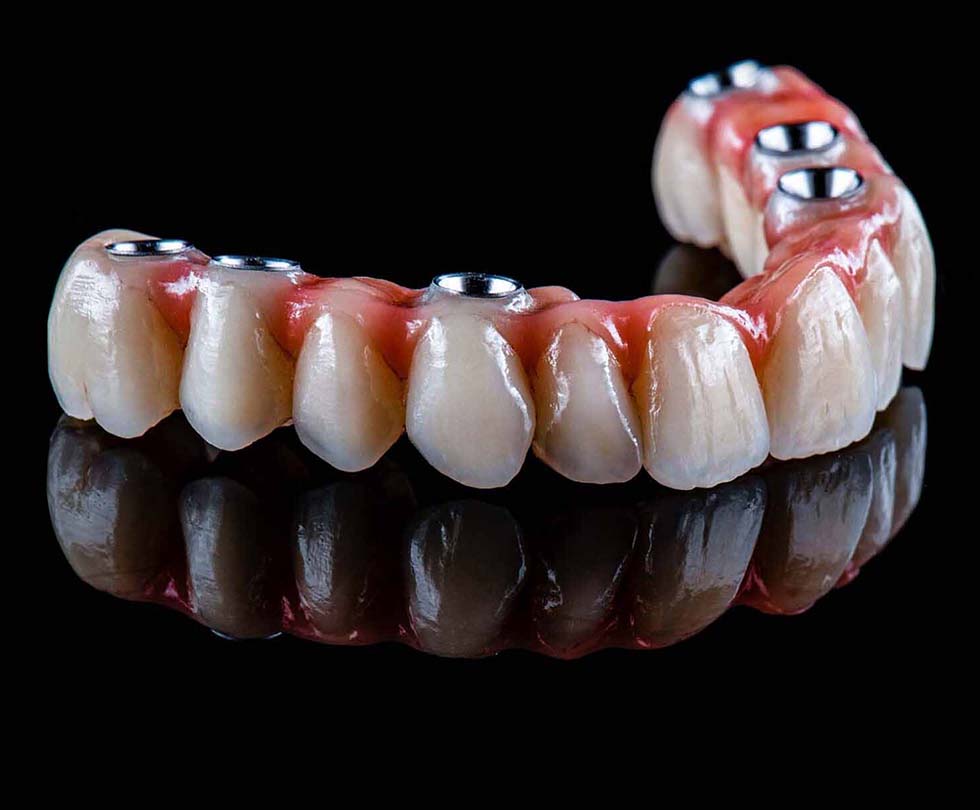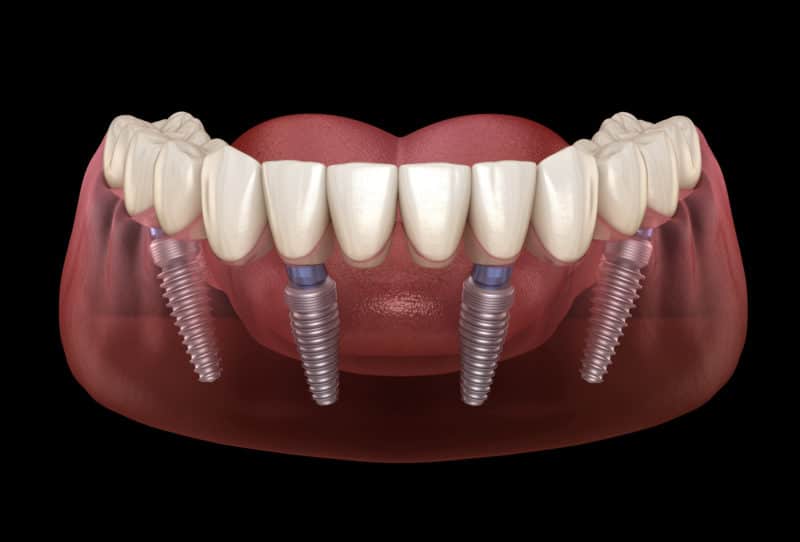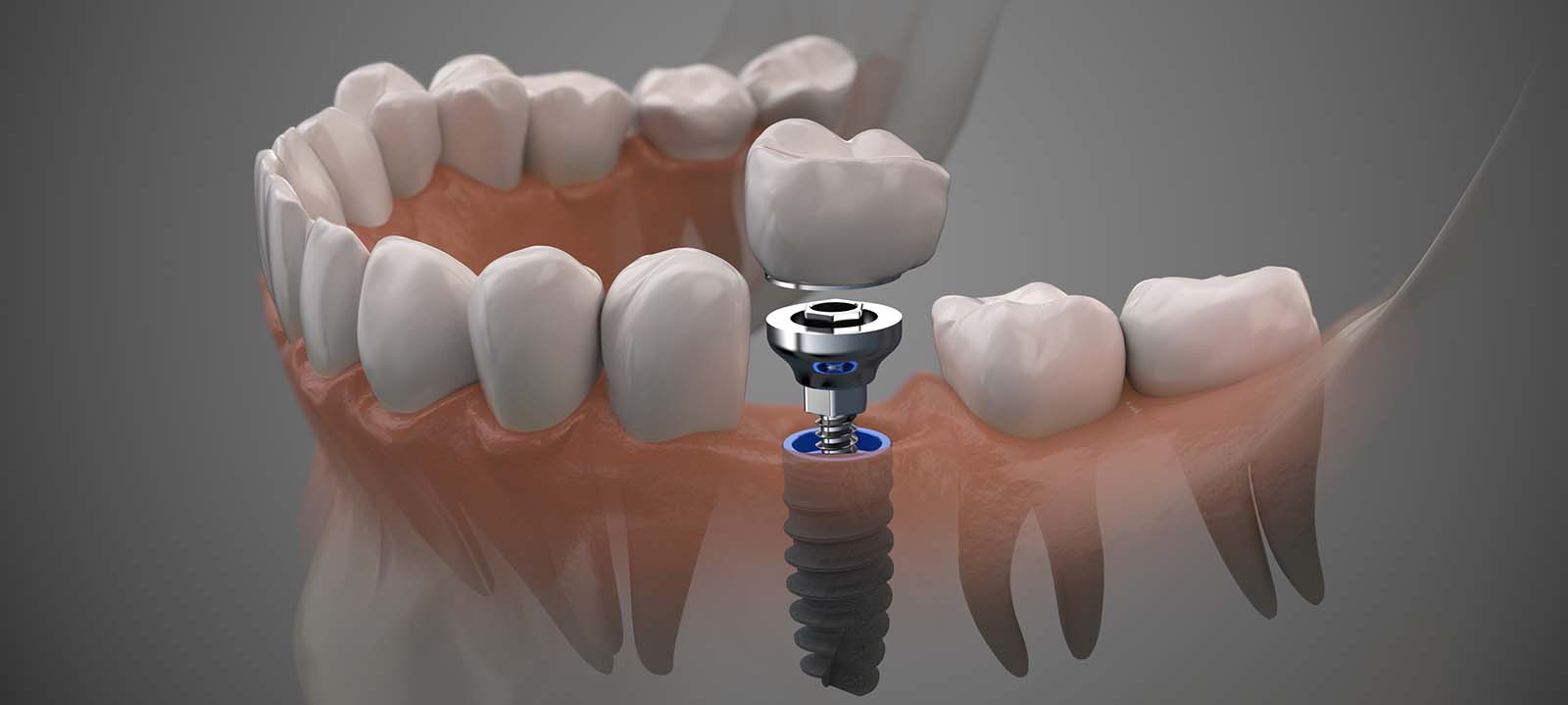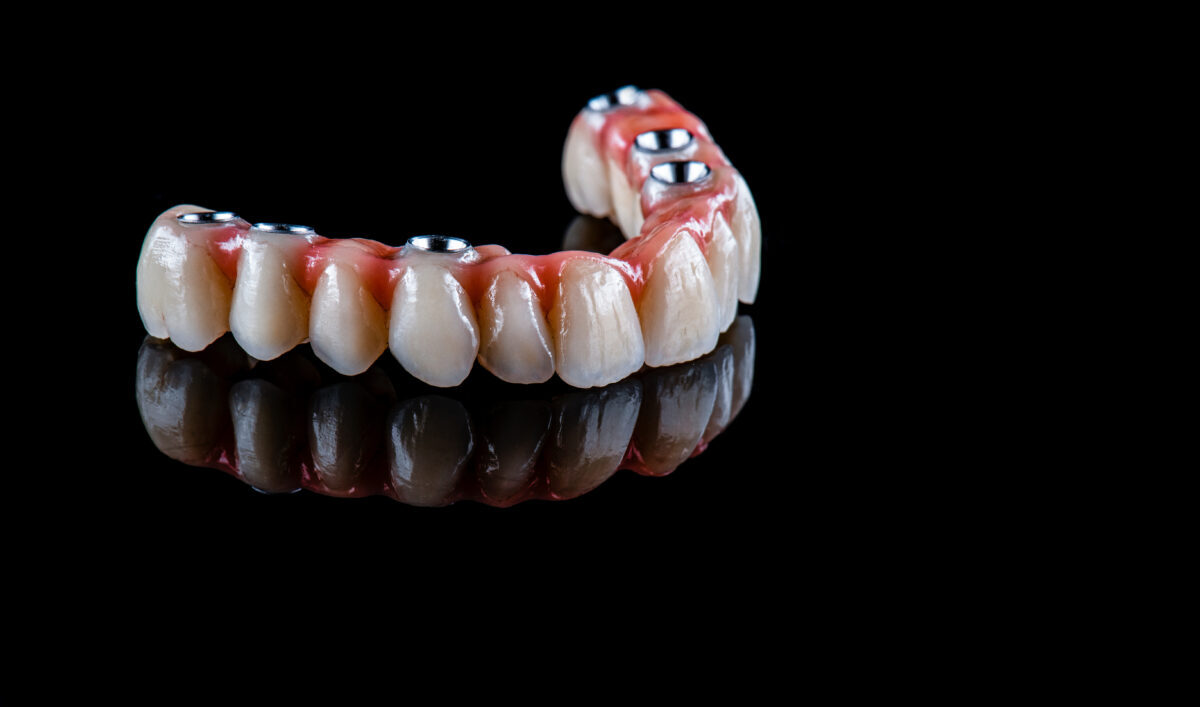Are dental implants necessary after extraction? The question of whether dental implants are necessary after extraction raises a fundamental query: Are dental implants worth it? Delving into the truth about dental implants unveils a nuanced perspective on the importance of this restorative dental procedure. As we navigate the landscape of tooth extraction and subsequent replacements, it becomes evident that understanding the value and veracity of dental implants is essential for informed decision-making regarding your oral health and overall well-being.
The Myth! Are dental implants necessary after extraction?
When a person loses a tooth, dental implants can be a common intervention. The top reasons for a missing tooth can be poor oral hygiene, plaque buildup, tartar buildup, decay, or disease.
Dental implants are used as a foundation and structure for the replacement tooth. Unlike other replacement options, an implant replaces the tooth and the root. If you lose a tooth and do not replace, a domino effect where one shift leads to another can happen.
This domino effect can cause a drastic change to the overall dynamic of your teeth and mouth. It can also cause issues with your dental occlusion which will affect your life.

When are dental implants necessary?
If you do not want dentures, bridges, or crowns to replace missing teeth, dental implants are then necessary. If you have missing teeth and do not replace them, the consequences can become extreme.
Dental implants are also necessary for the aesthetic benefits. Dental implants can also play a critical role in the function of the mouth. A dental implant can help support a healthy bite, keep teeth in their proper places, and contribute to decreasing bone deterioration. The pressure and stimulus of the chewing action can also help to preserve the jawbone.
Dental implants can also be beneficial to the overall beauty aspect of your teeth. With dental implants, you may not feel as self-conscious about how your smile. Dental implants are necessary to help increase your self-esteem and self-confidence when eating.

What happens if dental implants are not used?
Some people question the necessity of replacing a missing tooth with an implant. Some people even wonder how long they can wait before getting the procedure. These questions come from fear about the process and anxiety about the price of it.
Most people do not realize that waiting or refusing dental implants can have severe adverse effects on the health of their mouths. This lack of information leads individuals to wait too long to have the dental implant procedure completed.
When you put off or forgo dental implant surgery, you do so to your detriment. The results prove that it adversely affects your oral health, the overall health of your body, and your pocketbook. Typically, forgoing or delaying implant surgery causes more dental work requirements.
What are the long-term costs associated with not getting dental implants?
A wide array of items can go incredibly wrong if when a patient decides not to have dental implant surgery or delay the surgery. When a tooth needs to be pulled, it must also be removed or cause damage to the adjacent teeth. Dentists understand delaying or forgoing almost any dental procedure can cause damage later in life.
A tooth that has been missing for 12 months can cause the bone to atrophy. Atrophy is the decrease in bone density and height. This atrophy can mean that you will need a bone graph as well as the dental implant. A bone graft can be more painful and expensive than just a simple implant.
The positioning of your teeth can also be affected by postponing a dental implant. Every tooth in your mouth works together as partners. When one of these partners is missing, the other teeth can shift.
The teeth in the rear of your mouth can lean forward into the implant space. This fact means that when you do decide to get the implant, there may not be enough room. If an opposing tooth does not have a partner, it can become dislodged from the arch creating issues with your bite.
This shifting of the adjacent teeth is a gradual process that you may not notice. However, it begins as soon as you have a missing tooth. The eruption of the opposing tooth can also increase the chances of you experiencing temporomandibular joint pain (TMJ)
TMJ is a chronic pain in your jaw. Whether the tooth erupts or the molars lean in, you may need some form of orthodontics. This type of dental work includes braces, aligners, or anchorage devices to make space for the implant.
Besides these two nasty side effects of waiting, you can also begin to bit your tongue and cheeks more. This fact sounds innocence, but it can become a pain when trying to eat. It is also possible to overtax the side of your mouth that does not have a missing tooth.
This overtaxing can cause significant damage to your oral health. It is evident that dental implants can prevent pain and suffering in the long run. They can also save you money for the procedures as mentioned earlier.
It is important also to remember that dental implants generally become an investment in an individual’s confidence, oral health, and appearance. Most patients are concerned with the price of the procedure, but it is very affordable. It is more expensive to wait.
The dentists at Southland Dental Care also provide a variety of items to help ensure patient comfort. These things include a local anesthetic to IV sedation to help reduce anxiety associated with the procedure.
What are some benefits of dental implants?
It’s the best alternate to your natural teeth! You can now get a full set of brand new teeth in just a day with dental implants. A variety of benefits are associated with dental implants. As mentioned in the above section, one of the best benefits is the increase in self-esteem and confidence. Dental implants are durable, convenient, and helpful to your mouth’s overall health.
Dental implants can also provide support for speech abilities and chewing habits. With dental implants, you never have to remove them. It is possible to brush, eat, floss, etc. with the dental implants in your mouth. This benefit is the total opposite of having dentures.
Living in Los Angeles, Or Beverly Hills? If you have any inquiries about dental implants and their benefits, call for an appointment or consultation today. Dr. Hanookai and Dr. Abaian of Southland Dental Care are experts in their fields and can assist you with any question or concern.
Dr. Delaram Hanookai, oral surgeon, with over 25 years of experience is one of the top dental implant specialists in Los Angeles. She has transformed thousands of smiles in to health beautiful smiles. So what are you waiting for, schedule a consultation with Dr. Hanookai and
Schedule a Free Consultation
Give us a call at 818.788.8787 today!
Related Articles:
- The Definitive Dental Implant Guide for Patients in Los Angeles
- Dental Implants Surgery in Los Angeles
- Frequently Asked Questions About Dental Implants
- Full Mouth Dental Implants Cost
- All-On-4 Dental Implants: Are They the Optimal Choice for You?
- What Types of Dental Implants Treatment Do I Need
- We Offer The Best Dental Implants in Los Angeles
- Full Arch Dental implants in Los Angeles, CA
- How to Afford the Cost of Dental Implant Procedures
- Top Dentist Near Me in Los Angeles | Find Trusted Dental Care at Southland Dental Care
- Dental Implant Complications and Failure
- What can you do for missing teeth in 2023?
- Dental Implants vs. Dentures
- Comparing Dental Implants with Other Types of Tooth Replacement Options
- The Myth behind $1000 dental implants
Request a Free Consultation
Tel: 818.788.8787
Related Posts
Related Articles:
- The Definitive Dental Implant Guide for Patients in Los Angeles
- Dental Implants Surgery in Los Angeles
- Frequently Asked Questions About Dental Implants
- Full Mouth Dental Implants Cost
- All-On-4 Dental Implants: Are They the Optimal Choice for You?
- What Types of Dental Implants Treatment Do I Need
- We Offer The Best Dental Implants in Los Angeles
- Full Arch Dental implants in Los Angeles, CA
- How to Afford the Cost of Dental Implant Procedures
- Top Dentist Near Me in Los Angeles | Find Trusted Dental Care at Southland Dental Care
- Dental Implant Complications and Failure
- What can you do for missing teeth in 2023?
- Dental Implants vs. Dentures
- Comparing Dental Implants with Other Types of Tooth Replacement Options
- The Myth behind $1000 dental implants














